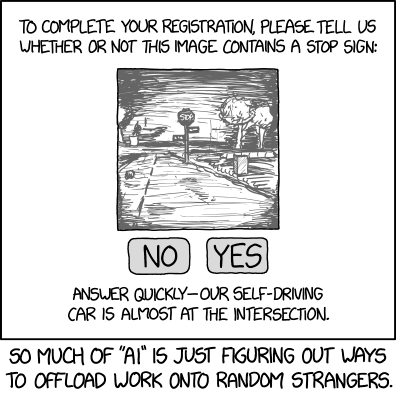When I see a persistent problem, I often try to look for what reasonable things might be being twisted to feed it.
I suspect that if you surround a man with deferential women with no other attachments visible, over time the man will tend to gravitate to either the father or the husband model--it's hard to be friends when you're the boss. And if it's the husband model, it may be hard to avoid feeling entitled to take liberties with your "harem" to which you are not actually entitled. The boss chasing the secretary around the desk has been a staple figure for ages.
It gets complicated becuase if the man's position is powerful it is no trick to find women who "will to greatness dedicate themselves." Of course consent by itself doesn't confer entitlement, despite the current philosophical fashion.
Interlude: exhaustive list of observations at work.
The man I ended up working for after Prof. Cline left had a disproportionate number of women as grad students. My memory is iffy, but I know he had three and may have had four. Given how low the fraction of women in particle physics in the US was at the time, this was pretty dramatic. They were all at about the same point in their studies, so I figured they knew each other before, and when one decided they all joined with her. I didn't worry about it--not my business. I was not then, or for most of the rest of my career, involved with mentoring or advising students.
Several years later I learned third hand that two of the profs (since retired and/or died) had been notorious womanizers until some unspecified event (intervention?), and that the prof I worked for had a reputation for treating women well. Another prof (since died) seemed to treat everyone well--seemed to treat students like family--but wasn't on one of the most famous experiments. A few other profs were on experiments that were winding down (and therefore less attractive) or perhaps had less good people skills.
One attractive woman (actually, they all were) set off my "risk, flee" alarms for reasons I never quite pinned down. She ended up suing one of the profs, but I never learned the details.
Once I found myself in a lab with three other men (two senior to me) and a secretary. The conversation was benign, but the vibes were all wrong. It felt like a dominance scenario, and the secretary looked a bit like a deer in the headlights. I figured the best way to break the spell was to announce that I had work to get back to and leave. Dunno if it worked, or if it needed to--maybe my vibe-meter was out of calibration that day.
As a student, and grad student, and post doc, I was on the "less socially ept" end of things--and to this day find parties hard to enjoy. I've not found an unambiguous way to convey a compliment or that I admire someone--and have pretty much given up any efforts in that line unless it is very straightforward.
That's probably a shame. (I do compliment X's work to Y when I can, and try to keep "gossip" positive.)
Perhaps I'm wrong, but it seems to me now that many women dress to excite admiration but not lust, attention but not interaction. As long as isn't overdone, that seems innocent and proper all around--try to be admirable, and have the good character to recognize and admire the good in others. In a less socially chaotic society there can be rules to buffer the reciprocal contact, which could convey the respect or admiration without requiring commitment. Think of "a tip of the hat"--no demand for a response: unless the tipper happens to be the someone she wants to address.
That's a corner example and not enough even for this simple case--they say women dress for other women, and men certainly want to be admired by men as well as women. But you get the idea, I trust. It represents a more formal society, with more social rules--but who proved that was a bad thing? I've been around Aspies long enough to think it would be a huge improvement.
Some of the harassment and molestation stories say the bosses do more than just take liberties--some of them are into seriously weird dominance patterns. This isn't a kiss or a squeeze he's not entitled to, but things done to prove that you are inferior. I've heard that President Johnson used to have talks with people while he was sitting on the toilet--and probably not because he was so terribly busy that every second counted. The only recent example that seems printable is Franken's mock groping picture. He was pretending to molest his "toy," not for any pleasure he could get out of it but so people could see what he could get away with. I'm not familiar with his humor style, but if that's an example I don't want to be.
Are things better than they were fifty years ago? It's hard to be sure, but I'd guess in some ways yes. It hasn't been socially acceptable to "chase the secretary" and I'd bet that's had at least some impact, though not much at higher levels of money and power. At those levels I'd bet things are worse. And the word I hear is that BFI HR policies tend to hammer the less powerful men who run afoul of someone's ire. It is gratifying to see some of the high and mighty being addressed for the first time.
I've a simple touchstone for what I judge acceptable: How would I want my daughters to be treated in this position?
Permit me to doubt that the solution is to have women as managers. Women are not more virtuous than men and they go in for dominance patterns too. If you haven't seen it already, you probably will.




